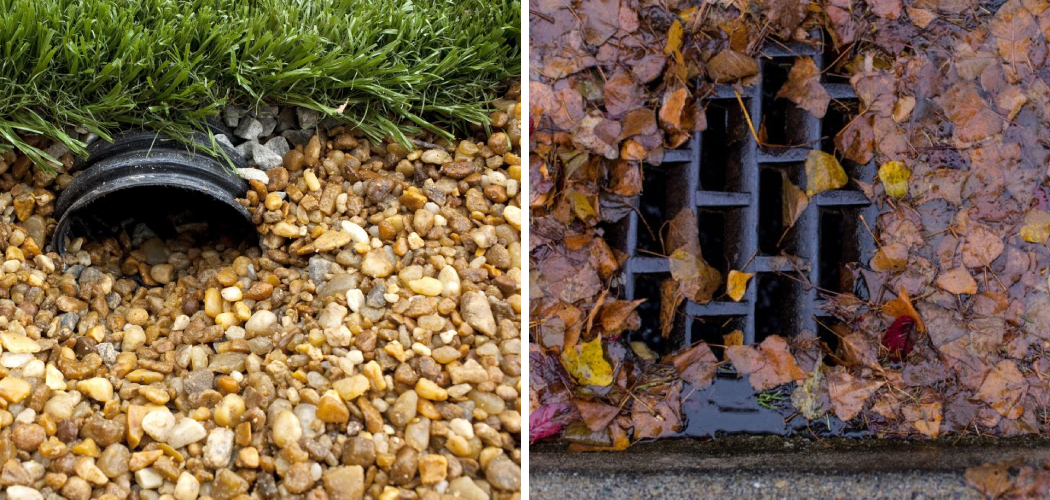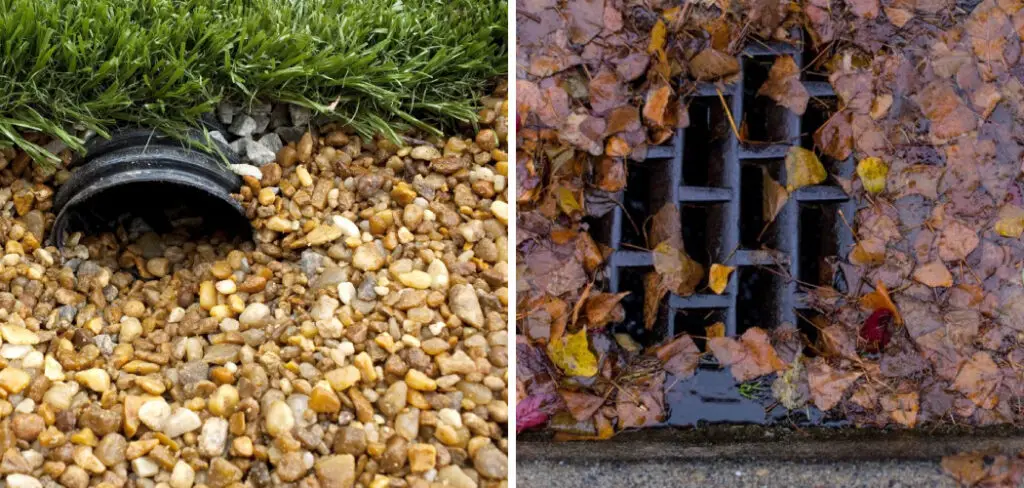
Yard drains can quickly become clogged with debris, making them difficult to maintain and potentially leading to flooding or water damage. But with a few simple actions, you can help keep the drains clear and avoid costly repairs.
In this blog post, we’ll walk you through various techniques for keeping yard drains from clogging to ensure your property remains safe from flooding. Read on to learn more about how to keep yard drains from clogging as well as protect your home!
Keeping your yard drain clear is an important task that many homeowners overlook. Clogged yard drains can cause flooding and water damage to the areas around your home, leading to costly repairs.
In this blog post, we’ll explore how to keep your yard drains free from clogs for years to come.
So if you’re looking for ways to ensure your property remains safe from unexpected flooding and other drainage issues, read on!
What Does Clog Yard Drains?
There are many reasons why a yard or outdoor drain may become clogged. Such as:
1. Debris and Dirt
One of the main reasons for clogging is the accumulation of debris, dirt, and leaves that can easily block a drain. These materials are often found near walkways or driveways where people frequently pass by and can get stuck in the drainage system.
2. Roots
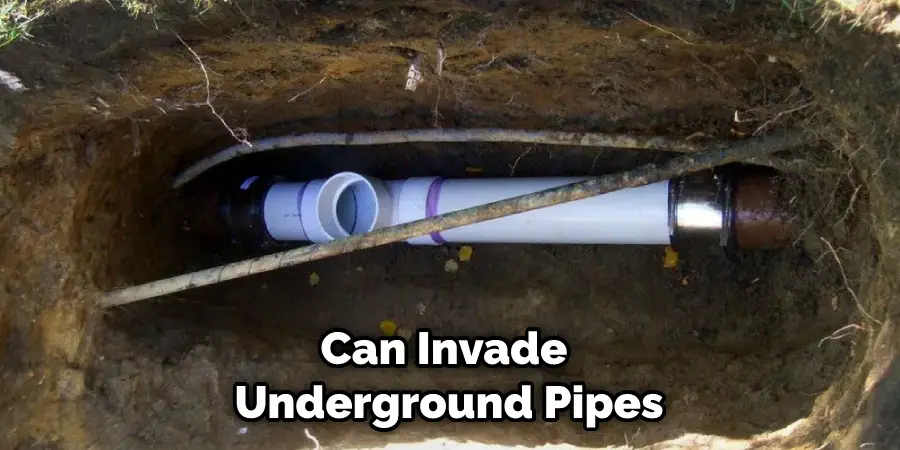
Tree roots from nearby trees can invade underground pipes and cause obstruction the flow of water, leading to a clogged drain. So if you find your yard drain isn’t draining properly, it may be because roots are blocking the pipe.
3. Grease and Oil
When cooking with oil or grease outdoors, these substances can easily enter the drain, causing a blockage and clogging up the system. It can also occur if you use an outdoor kitchen for cooking with oils, which can also find its way into the drain.
4. Foreign Objects
Foreign objects such as stones, rocks, and other large objects can cause blockages in the drainage system. These items should be disposed of properly to avoid clogging drains. So make sure to check your drains regularly for any potential blockages or foreign objects.
Following these tips and understanding what can cause clogging in yard drains can help you avoid this issue and keep your outdoor areas safe. Regular maintenance and inspections of drainage systems can help identify issues before they become a bigger problem.
15 Ways About How to Keep Yard Drains From Clogging
1. Clean the Drain Regularly
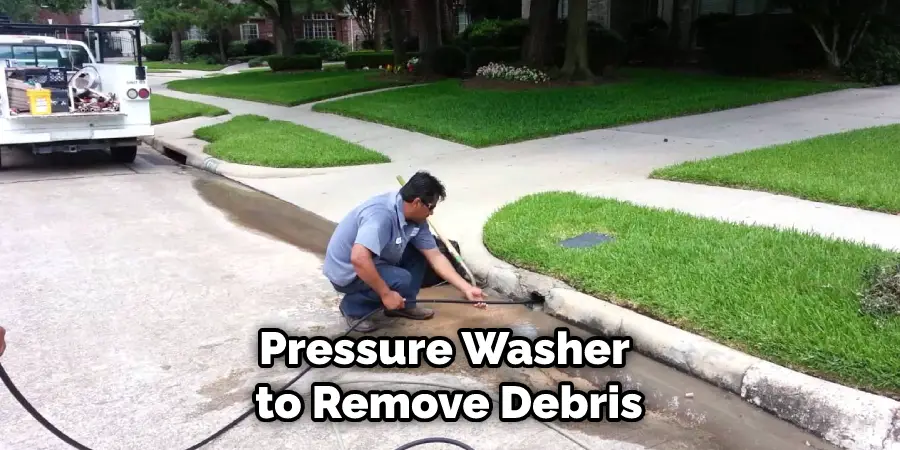
One of the best ways to keep a yard drain from clogging is to make sure it’s kept clean. Use a garden hose or pressure washer to remove debris and dirt that can cause blockages. Also, make sure to inspect the drain every few weeks and clean it out as needed
2. Install a Filter
Installing a filter over the drain will help prevent large debris from entering the drain in the first place, thus reducing clogging. Use a commercial-grade filter or install a DIY fabric filter over your yard drain.
3. Use an Organic Material Filter
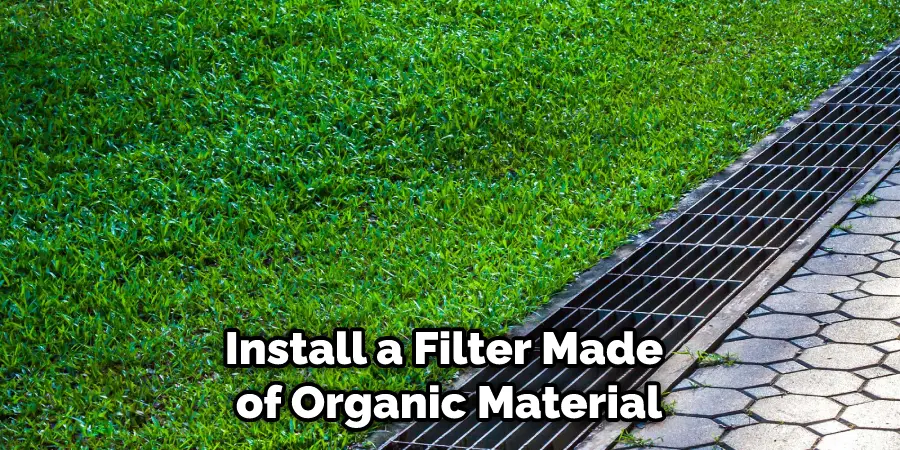
Depending on the type of yard drain you have, installing a filter made of organic material, such as straw or hay may be possible. This will help filter out any large debris that could clog the drain and keep small particles from entering the system.
4. Plant Ground Cover
Planting a ground cover around the drain can help keep dirt, leaves, and other debris from entering the drain. Choose plants that grow quickly and require minimal maintenance for the best results.
5. Install a Drain Cover or Grate
Installing a simple grate or cover over the yard drain will help keep debris out of the drain and reduce the chances of it clogging. Make sure to check the grate regularly for any build-up of debris that can cause a blockage.
6. Put Up a Fence Around the Drain
This is especially important if you have small children or pets running around your yard, as they may accidentally kick things into the drain. A fence will also help keep out larger debris that can clog the drain, such as sticks and stones.
7. Use Filter Socks
Filter socks are small fabric tubes that are placed over the yard drain to filter out any large particles or debris from entering the system. The filter sock should be checked regularly for buildup and replaced as needed.
8. Check Your Gutters
Ensure your gutters are clear of debris and properly draining away from the yard drain. Debris that accumulates in the gutters can be washed into the yard drain, causing a blockage.
9. Clear Out Any Overgrowth Near the Drain
Any overgrowth near the yard drain should be cleared away. This will help keep large debris from being washed into the drain and also helps to reduce any buildup of dirt or leaves that can clog the drain.
10. Clean Out Debris From Around The Drain
Use a broom, rake, or vacuum to remove any debris that has built up in and around the drain. Be sure to double-check for any large debris that could cause a blockage. But you have to make sure that the vacuum is powerful enough to handle the job.
11. Rake Leaves Away From The Drain
If you have trees in your yard, make sure to rake leaves away from the yard drain every autumn. This will help keep large piles of leaves from clogging up the system and reduce any sediment buildup around the drain.
12. Consider Installing an Automatic Drain Cleaning System
An automatic drain cleaning system can help keep the yard drain clear of debris and sediment. This type of system can be installed in a matter of minutes and will ensure that your yard drain is kept clean and free-flowing.
13. Install a French Drain System
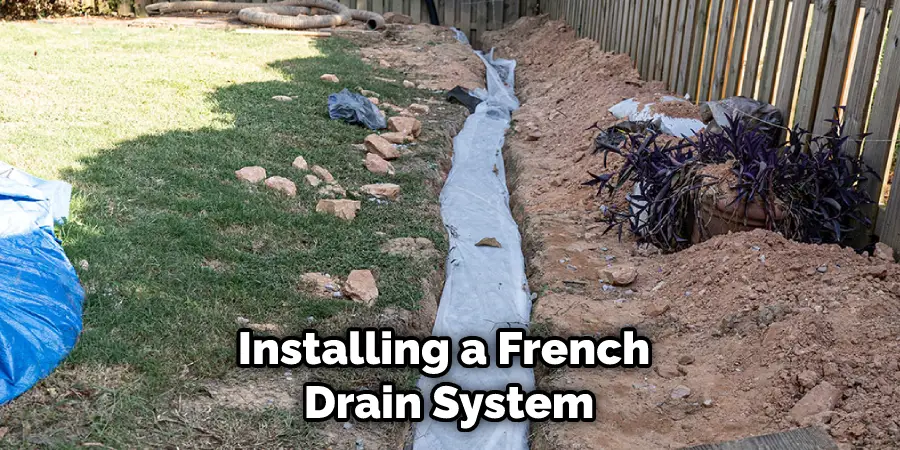
Installing a French drain system around the yard drain can help to divert water away from the area and reduce sediment buildup. This will also help keep leaves, sticks, and other debris from entering the drain.
14. Install a Sediment Trap
Installing a sediment trap is another great way to reduce the chances of a clog in your yard drain. This type of trap will help catch any sediment accumulating in the system and can be easily drained out using a garden hose.
15. Hire a Professional
If you still have problems with your yard drain clogging, it may be time to call a professional plumber or drain cleaner. They can assess the situation and recommend the best course of action for your problem. This may include unclogging the drain, installing a new drain system, or replacing an existing one.
With their help, you can be sure that your yard drains will remain free-flowing and clog-free.
These are some of the best ways to How to Keep Yard Drains From Clogging. Taking the time to maintain your yard drains properly will help keep them clear and free-flowing for years. By following these simple steps, you can rest assured that your yard drains will remain clog-free and in perfect working order.
Frequently Asked Questions
What Precautions Should I Take to Avoid Clogging My Yard Drain?
There are several steps you can take to avoid clogging your yard drain. Make sure to clean out leaves and debris from the drainage grate regularly. You should also check for blockages in the underground pipes, as those can cause clogs if not cleared.
Another important step is to keep your gutters clean and free of debris—this will help keep the runoff water flowing away from your yard drain instead of clogging it up. Finally, be sure to use a quality soil cover to prevent sediment and other materials from entering the drainage grate. Following these steps can help you prevent costly clogs in your yard drains.
What Kind of Soil Cover Should I Use to Keep My Yard Drains From Clogging?
The type of soil cover you should use depends on the size and shape of the yard drain. You can use mulch, small gravel, or other materials that allow water to pass through but prevent sediment from entering the drainage grate. It is also important to check the soil cover periodically to make sure it is not clogging up.
If any debris or sediment has accumulated, be sure to remove it to keep your yard drains from becoming blocked.
How Can I Tell if My Yard Drain Is Clogged?
If water starts to back up in your yard after heavy rainfall, this can be an indication that your yard drain is clogged. Additionally, if you notice any pooling water or a musty smell coming from the drainage grate, these are also signs of a clog.
If you suspect your yard drain is clogged, it’s best to call a professional plumber for assistance, as trying to clear the blockage yourself can cause further damage.
Conclusion
Now you know how to keep yard drains from clogging. With the proper maintenance and preventive measures, you can ensure that your yard drains remain free-flowing and clog-free. From installing a sediment trap to hiring a professional, there are several ways to help keep your yard drains clear.
As long as you take the time to properly care for your drainage system, it should withstand the elements for many years.
Taking these steps should help you prevent clogs in your yard drains. However, if you find that you are still having issues, it is best to consult with a professional.
A clogged drain can seriously damage your home and property, so it is better to be safe than sorry!
About
Outdoor Fixes is a distinguished figure in the world of Diy design, with a decade of expertise creating innovative and sustainable Diy solutions.
His professional focus lies in merging traditional craftsmanship with modern manufacturing techniques,
fostering designs that are both practical and environmentally conscious. As the author of diy,
outdoorfixes delves into the art and science of outdoorfixes-making, inspiring artisans and industry professionals alike.
Education RMIT University
(Melbourne, Australia) Associate Degree in Design (Outdoor Fixes) Focus on sustainable design, industry-driven projects,
and practical craftsmanship. Gained hands-on experience with traditional and digital manufacturing tools, such as CAD and CNC software.
Nottingham Trent University
(United Kingdom) Bachelor’s in outdoorfixes.com and Product Design (Honors) Specialized in product design with a focus on blending creativity with production
techniques. Participated in industry projects, working with companies like John Lewis and Vitsoe to gain real-world insights.
Publications and Impact
In diy, Outdoor Fixes his insights on indoor design processes, materials, and strategies for efficient production.
His writing bridges the gap between artisan knowledge and modern industry needs, making it a must-read for both budding designers and seasoned professionals.

